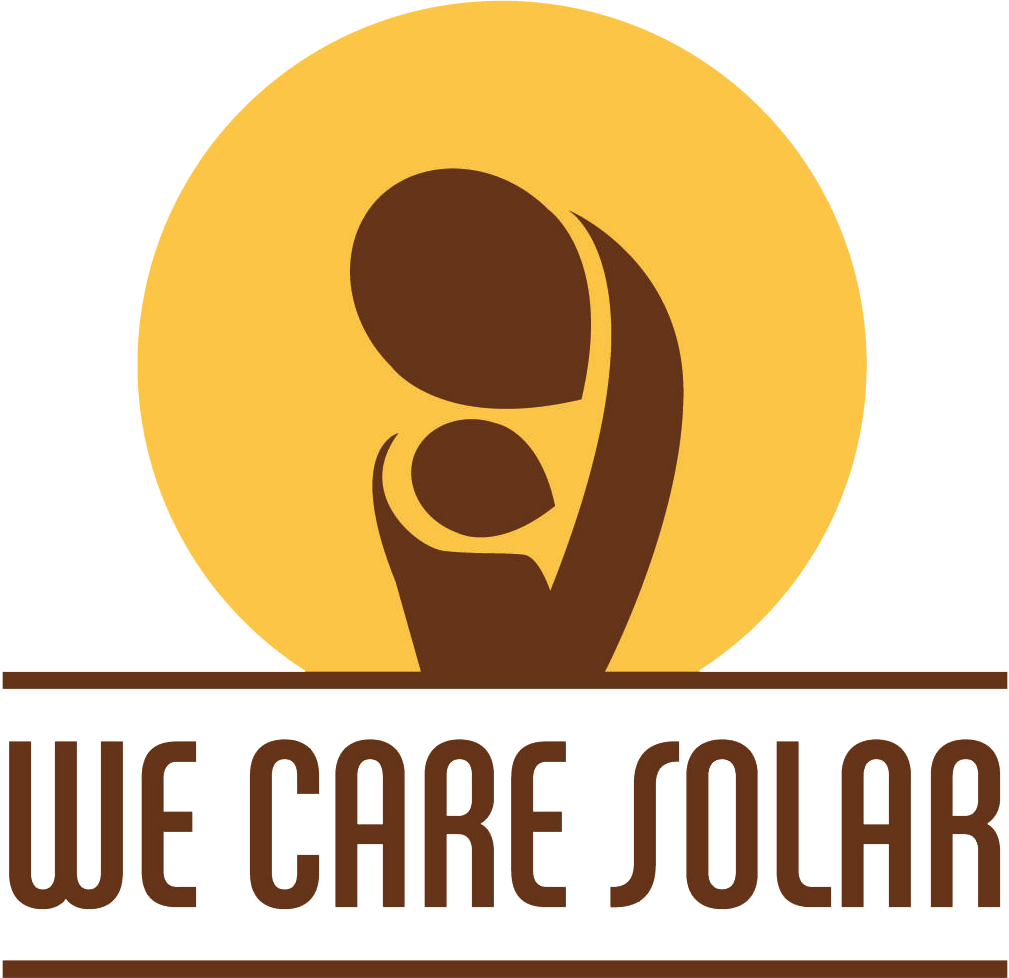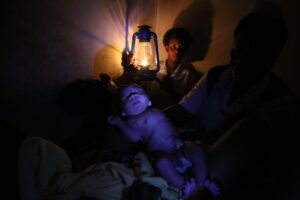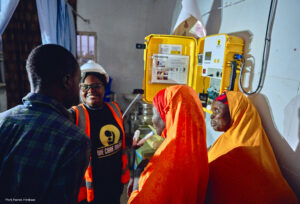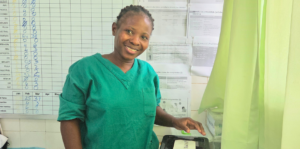 You can’t imagine the reaction of African health care workers who receive the solar lighting and communication kits. I have had the delight of handing out two portable solar electric kits I transported to Nigeria today, thanks to the generosity of some of our donors. The kits come with one or two solar panels, a battery, a charge controller, and 2 room lights. In addition, we provide two-way radios for the hospitals without reliable communication systems, and rechargeable LED headlamps for the midwives and surgeons.
You can’t imagine the reaction of African health care workers who receive the solar lighting and communication kits. I have had the delight of handing out two portable solar electric kits I transported to Nigeria today, thanks to the generosity of some of our donors. The kits come with one or two solar panels, a battery, a charge controller, and 2 room lights. In addition, we provide two-way radios for the hospitals without reliable communication systems, and rechargeable LED headlamps for the midwives and surgeons.
If you would like to have an inkling of the significance of this project to the people we serve, I recommend you set up a very difficult task in your home one night, one that requires concentration, clear focus, illumination, and is of life-threatening importance. Then…turn out your lights and try to complete your task. And no…you can’t ask for help. That would require a remote communication system.
One hospital in Northern Nigeria received a kit with lights and two-way radios this afternoon. The director of the hospital, Dr. Marcus, is an extremely competent physician I met over a year ago on my first trip to Nigeria. At that time, he was a medical officer doing his best to provide care in a large government hospital. He was assigned to be the Medical Director of a smaller government hospital last August, and provided me with a tour of his facility last summmer. The rooms were poorly lit and minimally stocked. The labor room had two beds, and a handful of supplies.The operating room was locked and hadn’t been used in months.
Dr. Marcus resurrected the operating theatre, creating a functional room that provides elective surgeries during daytime hours, when sunlight is available. His greatest lament is the inability to conduct emergency surgeries at night because of unreliable electricity. He also is severely short staffed, and has 2 physicians providing 24 hour care, 7 days a week for this 35-bed hospital. The lack of a communication system has been a terrible challenge to the hospital, and the government has not provided funds for the free maternal health care program since December. The hospital has no money to purchase fuel for the diesel generator, or to pay for charge cards for cell phones.
The solar powered LED bulbs, two-way radios and small headlamps he received from WE CARE Solar today were the answer to his prayers. He and his staff were extremely grateful, and readily learned about the use of the solar panels, batteries, and charge controllers.
I wish I could adequate convey to you the impact these interventions will have on the health care facilities that receive them. The medical director will immediately be able to perform emergency surgeries at night. Thus, pregnant women who fail to deliver vaginally at this hospital will NO LONGER need to find their way to another hospital for definitive care! Midwives in the labor room will have adequate lighting, and will immediately be able to reach the doctors when they have questions or the need for highly skilled care. And the overburdened doctors will be able to actually take a small break from the hospital and walk to the market without the fear that they can’t be notified about emergencies.
Thank you to all of you who have provided support in any way to this project. You have put smiles on the faces of many health care workers, who look forward to providing better care for women who overcome overwhelming obstacles in their attempt to have a healthy delivery.
The health care workers I met today extend their deepest appreciation for your generosity.







